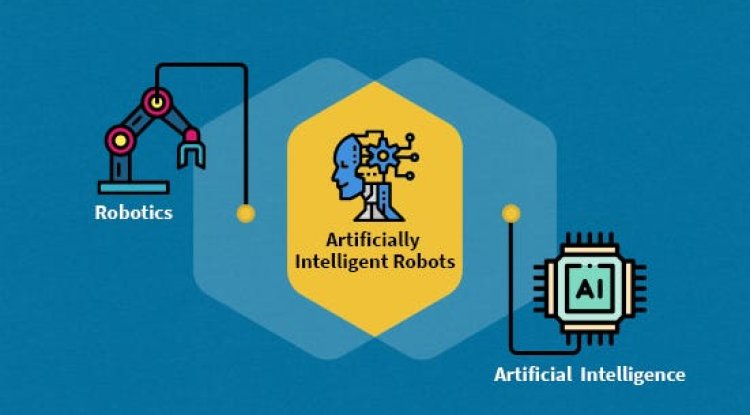Explore why studying Computer Science abroad remains relevant and future-proof in the era of AI. Discover top global universities, career prospects, and how ACHIVIA supports your overseas education journey

Why prefer studying Computer science overseas in the era of AI?
In the past few years, it has become evident how AI has transformed the world of computer science, ranging from assisting in the design of complex algorithms to automating repetitive coding tasks - AI has done it all.
This is where a persistent and challenging question arises:
Is there still value in studying computer science during the age of fast-evolving AI technology?
Let's examine the question by considering the significance of AI in the education sector, particularly in terms of overseas education and study abroad opportunities.
The Foundation
Core computer science skills — such as understanding data structures, designing algorithms, building software, and creating systems — are the foundation on which AI is built. To develop any innovation in AI – or to responsibly and effectively utilize it – a profound knowledge of computing principles is a prerequisite. Studying a field in computer science should not be aimed at competing with AI but rather should be taken as a source of improving its use through an understanding of real-world applications.
Some listed abroad educational institutions that can be taken as examples are:
United States: MIT's Computer Science and Artificial Intelligence Laboratory (CSAIL) is one of the most extensive and influential AI research centers abroad. It was formed in 2003 from the merger of two earlier labs—one of which (Project MAC) dates back to 1963. CSAIL has played an important role in advancing AI through projects in robotics, machine learning, and data privacy.
United Kingdom: University College London (UCL) is a prominent institution in the field of AI, with a focus on areas such as machine learning, natural language processing (NLP), and AI ethics. It is home to the center for AI that focuses on real-world applications and advanced AI research."
How Progressive Ideas Are Shaping Overseas Institutions
The rise of AI has expanded the scope of computer science rather than diminished it. Traditional areas like cybersecurity, networking, database systems, and human-computer interaction have evolved and now intersect with AI in exciting ways, and the projects done are put to needful use, for example,
Newcastle University (UK): Literal Labs is a spinout of Newcastle University, an AI-based start-up that works on developing energy-efficient models using the Tsetlin machine (an AI algorithm alternative to conventional networks). This approach helps reduce computational costs and energy consumption, addressing sustainability concerns in AI development.
University of Sydney (Australia): Cogniti (AI Assistant) Cogniti (AI Assistant) is developed in a way that helps students learn more effectively by understanding student needs, offering personalized feedback, and adapting to different learning contexts. Simultaneously, it also supports teachers by automating tasks like creating assessment rubrics, making classroom management more efficient, and freeing up time for more meaningful interactions.
Marquette University (USA): Marquette University's HEIR Lab engages students in designing robots; one such project is the MU-L8, a 3D-printed humanoid robot that is programmed in such a way that it can help coaches and STEM educators who blend AI with robotics to improve the health and education sectors in an innovative way.
Career Prospects: Human + AI, Not Human vs. AI
Employers are seeking individuals who can collaborate with AI rather than being replaced by it. Skills like
Machine Learning Engineer- Develops machine learning models and algorithms.
Data Scientist - Analyses large datasets to extract insights using machine learning and statistical methods.
AI Research Scientist- Works on cutting-edge research in areas like advancing artificial intelligence by exploring new algorithms, methodologies, and technologies
AI Product Manager -Leads development and strategy of AI-powered products.
Understanding how to code, deploy scalable systems, and work with data gives you an edge whether you're working on AI projects or applying AI to traditional industries like finance, healthcare, and education.
Despite the fact that AI can handle specific tasks with impressive speed and efficiency, it's still human creativity, ethical judgment, and big-picture thinking that drive real progress, and these are things that machines cannot replicate and likely will never be able to.
Conclusion
AI isn't the end of computer science but an exciting new beginning. While studying computers, especially in innovative and visionary global institutions, one not only learns how to work with AI but also contributes to tailoring it by being part of the process. One slowly starts becoming part of something bigger, something that's still unfolding and expanding at a remarkable speed.
So yes, in a world where AI is changing everything, choosing to study computer science isn't just relevant — it's one of the most thoughtful, most future-proof decisions you can make. This is where ACHIVIA steps in to help you grow and plan your future in the most effective way possible. ACHIVIA is one of the top overseas education consultancies in Odisha, dedicated to assisting individuals with career guidance. At ACHIVIA, we provide a dedicated and supporting team throughout your entire journey to help pursue their dreams of studying abroad and building the future they’ve always envisioned with a team of qualified professionals. We take the time to understand your goals and provide personalized guidance tailored to your needs. Let us be a part of your success story. Contact us today to book your appointment!
*Image source:- Princeton engineering-Princeton University*
What's Your Reaction?




















